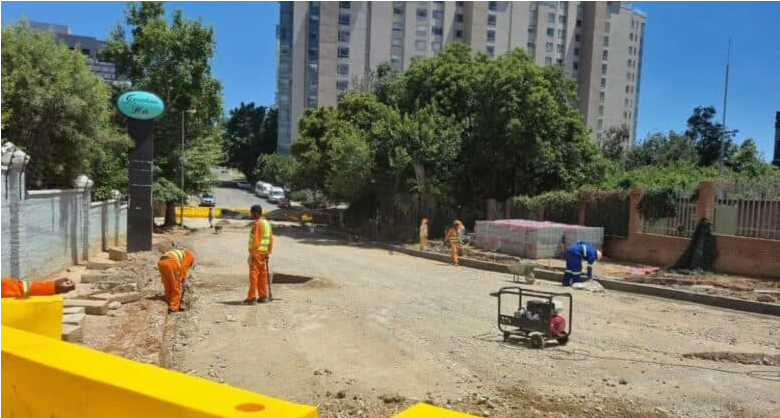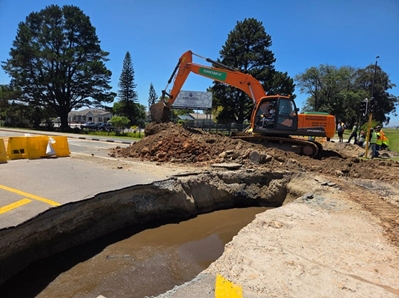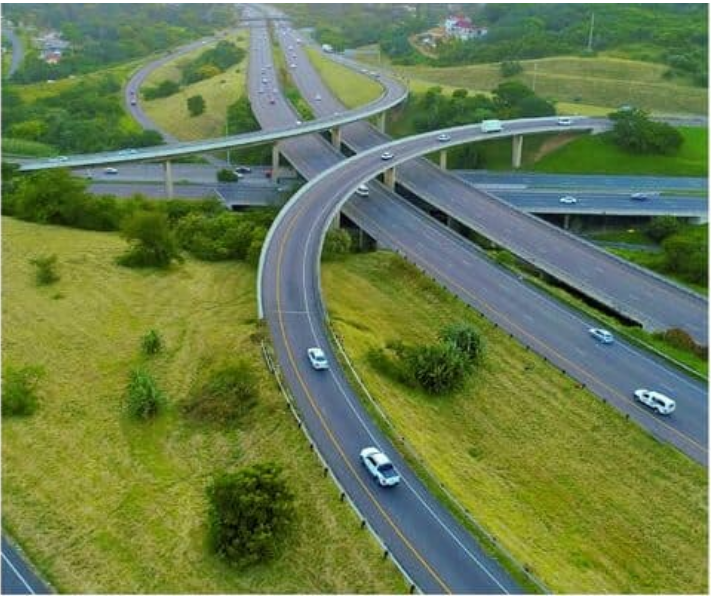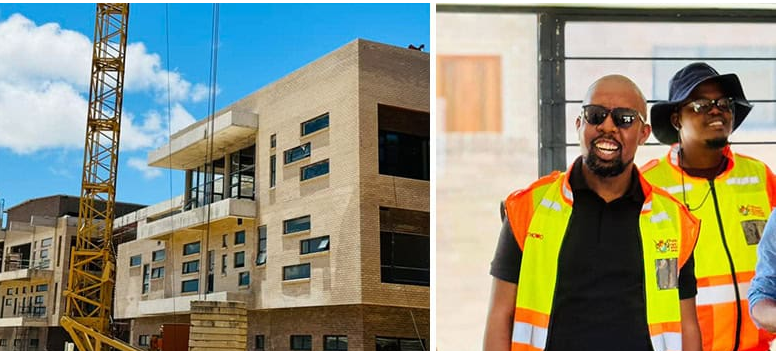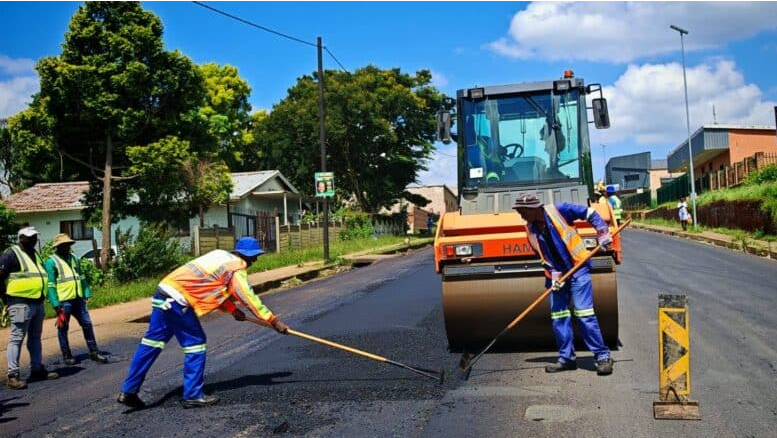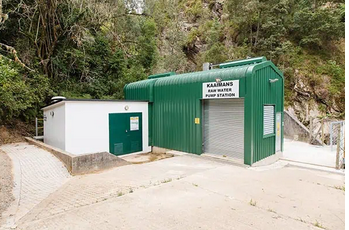Medium term plans for activation of the development and construction industry post COVID-19

Advertising
14-05-2020
Read : 263 times
L2B
Source
At the end of April, the Construction COVID-19 Rapid Response Task Team (CC19RRTT) submitted to Ms. Patricia de Lille, Minister of Public works and Infrastructure medium-term plans for the development and construction industry post COVID-19.
The CC19RRTT engaged extensively prior to the submission and numerous organisations were involved in the development of the proposal.
We publish the executive summary to the proposal but urge you to download and read the full proposal.
The Construction Covid-19 Rapid Response Task Team is a voluntary body consisting of a wide range of professional and industry representative bodies active within the development, built environment, and construction sectors. The Task Team has identified and presented practical interventions, focused on the short-term reactivation of construction sites and processes that can be put in place by government to support the ailing development and construction sectors. The short-term reactivation measures have focused on health and safety measures to assist the safeguarding of construction workers and suppliers.
The Covid-19 situation, which has occurred at a time when the entire building industry is already in a crisis, brings into focus the urgency and need to review some of the regulatory framework and procurement environment for which Government is responsible. The revival of the building and construction industry hinges on a ‘re-think of the regulatory framework” This document therefore focuses on medium and longer-term interventions required to support the built environment and construction sectors to ensure that these sectors can contribute to the economic recovery and growth of the country.
National Government through various organs of state directs and funds public infrastructure build, typically through the Department of Public Works & Infrastructure, but also through various other Departments like Human Settlements; Arts Culture & Sports including SOE’s and various implementing agents like the DBSA, IDC, Coega etc. All these are governed by procurement directives from National Treasury. The Public Infrastructure build, together with private sector investment, plays a key role in creating employment opportunities in the sector and its regulation determines the successes or failures of the Built Environment sector.
The property development sector, both private and public, is responsible for fixed capital investment that addresses social and market needs and, importantly, reflects medium- to long term confidence in the future of the country. Government on the other hand, which contributes towards public infrastructure build and regulates the sector through various entities, guidelines and provisions plays a key role in creating employment opportunities in the sector. The Covid-19 situation which happened at a time when the entire building industry was in a crisis, brings focus and urgency to the need to review some of the regulatory framework and procurement environment for which Government is responsible.
Development depends on the civil and building construction sectors which are essential and critical assets to any well-functioning country’s economy, and political mandate to develop public and private infrastructure. The collective built environment industries, consisting of developers, built environment professionals, civil, landscape and building contractors and their respective materials manufacturers and suppliers make up this industry that serves both public and private sectors. They are responsible for the conceptualisation, development, planning and execution of fixed capital investment in the country.
The industry employs a wide range of role-players ranging from highly educated technical experts to wage-earning labour. More than two thirds of any development process is currently being spent on obtaining statutory approvals, twice as long, if not longer, than it takes to construct a typical development. Construction can only commence once statutory approvals are in place. If one were to support the construction industry, one cannot but address duplication of statutory processes and delays in the statutory approval phase of a project. Such delays also inhibit any national economic turnaround. This document addresses this in more detail.
Bearing in mind that the statutory application process only employs a small group of highly qualified and skilled professionals and government officials, the bulk of the industry is left waiting on the side-lines hoping that by the time approvals are obtained, economic conditions would still warrant the investment and construction.
The current proposed schedule of services to be phased in as per the COVID 19 Risk Adjusted Strategy also creates delays as it only allows Professionals to work on aspects allowed in that specific level. For example, a Land Surveyor cannot start on work needed by other professionals in a lower level. It is important that the entire value chain supporting permissible building and construction projects in each level be included in the permitted resumption of activity.
Similarly, in the case of public sector fixed capital investment projects, not only do these projects need to run the same gauntlet of statutory approvals that private sector projects do, but public projects are further encumbered by extremely slow and cumbersome procurement processes and decision-making leading to regular under-expenditure on capital budgets.
Millions of Rands are wasted in the duplication of standard returnable information required when responding to bids invited by public sector entities, which when one considers that there can only be one winner in a bid, constitutes large amounts of sunk costs and a waste to the economy overall, whereas the capacity of many could be utilised more productively by the public sector.
The increased administration required in the execution of projects and cumbersome decision-making often leading to extended execution periods and regular under-expenditure on capital projects.
In this medium-term plan, the Construction Covid-19 Rapid Response Task Team calls for a fundamental change in how government and the public engage with fixed capital investment. The purpose is the activation of the property and infrastructure development industry so that more construction projects can take place, thereby delivering all the benefits that the construction industry can achieve as an economic multiplier in terms of creating employment both upstream and downstream, providing for social needs, increasing the growth of the rates base and ultimately delivering a visual illustration of the government’s and market’s confidence in the recovery and the future of the country.
The submission is structured along the following main themes:
The need for the alignment and merging of all statutory approval processes into a single application process.
The empowerment of qualified and registered design professionals to self-certify their work, or alternatively peer certification on a rotational basis.
Restructuring of public procurement processes under the guidance of the quantity surveying, architectural and engineering professions who are responsible for procurement processes in the private sector on a daily basis noting the need to acknowledge the broad intent of the current PFMA & MFMA’s. The shortcomings of these policies in the procurement of professional services also should also be acknowledged and reviewed.
Establishing a supply chain environment which differentiates between procurement of goods and procurement of professional services.
Creating a regulatory framework which supports the industry to be sustainable rather than contribute to its collapse.
Increase public-private partnerships for the provision of infrastructure projects.
Facilitation of development finance to ensure that more projects get to the bankable feasibility stage.
The Construction Covid-19 Rapid Response Task Team is appreciative that the rethink, as proposed in this document, will require alignment of and changes in various statutes and regulations. It would, however, be reticent to, on the one hand, call for support of the construction sector whilst not, on the other, deal with structural impediments preventing fixed capital investment from taking place in the form of construction or other types of built environment development.
In full cognisance of the capacity challenges that exist within the public sector, especially at Local Government level where funds are generally unspent due to the absence of the relevant expertise, achieving a level of success in the short term will depend on the acceptance of and the utilisation of private sector capacity to manage the aforementioned processes. At the same time the opportunity presents to upskill unemployed built environment practitioners who may then be absorbed into these public sector positions as full-time employees thereby replacing contracted persons.
Click here to download Development and Construction Sector Medium Term Plans for Activation of the Industry Post COVID-19 Lockdown
Recent News
Here are recent news articles from the Building and Construction Industry.
Have you signed up for your free copy yet?
